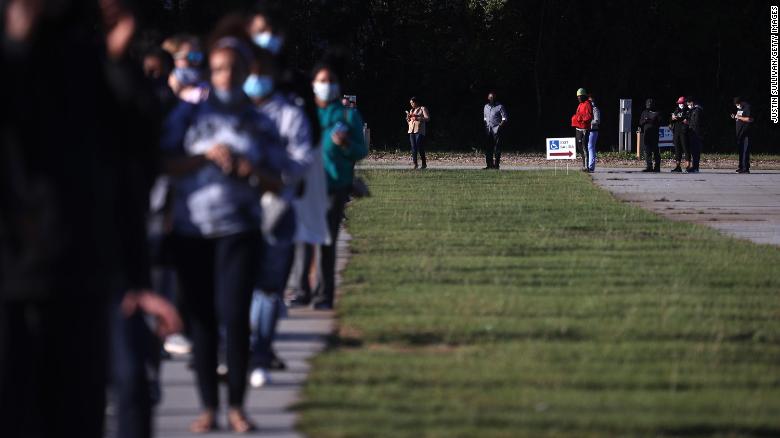By Rohail Spear || Layout Assistant

Last week on Mar. 25, Georgia passed The Election Integrity Act of 2021, a bill containing new voting laws that opponents say are a direct response to the 2020 election, as well as a means of restricting access to voters, particularly minority voters. Numerous civil rights organizations have not only criticized this new bill but have filed lawsuits. The state president of the Georgia NAACP, James Woodall, called the bill “a thinly veiled attempt” to restrict “Georgians’… voices in the democratic process (CBS 2021).” President Joe Biden said that the bill was “Jim Crow in the 21st Century.” Republicans claim this legislation was written to ensure that future elections are “secure, accessible, and fair,” according to Georgia’s governor Brian Kemp (WALB 2021).
So, what does this new bill include?
Changes to absentee voting are among the most controversial points. Now, voters will be required to request an absentee ballot starting 11 weeks (77 days) before the election. Previously, you could request a ballot starting 180 days before the election. Additionally, the deadline to complete the application has changed to two Fridays before the election, instead of one Friday. Moreover, counties will start mailing the ballots four weeks before the election as opposed to seven weeks before the election.
You are also now required to bring your driver’s license or other accepted photo ID. Previously, your signature was verified.
Absentee ballot drop boxes, which were not required a year ago, are now required in every county. There can only be one box per 100,000 voters or one box per voting location, whichever is fewer. These boxes will be located in early voting locations and are accessible only during voting hours as opposed to 24/7.
Everyone other than poll workers is now prohibited from giving food and water to voters in line and inside the polling building. This is a point of contention, especially as lines in previous years have lasted hours.
There is a new deadline for the finalization of vote counts. Counties risk facing investigation if they don’t finish counting the votes by 5 pm the day after the polls close.
Changes are also occurring in the State Election Board. The Secretary of State is no longer its chair: instead, the new chair is appointed by the state House and Senate. Besides, the Board can now suspend county elections if the Board deems they need review.
This new bill is highly controversial. Opponents of the bill claim that the rule requiring a form of identification will disproportionately affect black residents, 88% of which are below the poverty line and therefore may be unable to produce acceptable forms of identification. Proponents of the bill argue that the form of identification measure will ensure a more secure election, as signature-matching is a more questionable form of identification than numerical data found on a driver’s license.
The rule preventing third parties from handing out food and water to voters is also in question. Advocates for the bill claim that this rule is intended to ban electioneering; voters standing in line will no longer be swayed by political parties offering them food and beverages. Opponents to the bill, such as the ACLU (American Civil Liberties Union), argue that this rule is “cruel and inhumane” given the long lines and hot weather Georgian voters are often subject to. While the poll workers will still hand out water to those in need, the ACLU argues that voters of color may not receive the same attention that white voters will, given the history of discrimination in Georgia.
Currently, the Justice Department is reviewing the law and President Biden is “working” on it, although he isn’t sure “what we can do at this point.”. Three federal lawsuits have been filed, and the Supreme Court is expected to make a decision regarding the constitutionality of the bill by late June. Massive companies such as Delta and Coca-Cola have publicly denounced the bill, and the MLB has relocated the All-Star Game out of Atlanta, Georgia due to its discriminatory nature. If the bill remains law, however, the next election will tell just how much of an impact it will have.
For more detailed information about what the bill includes, visit https://www.gpb.org/news/2021/03/27/what-does-georgias-new-voting-law-sb-202-do
Or read the bill: https://www.documentcloud.org/documents/20527915-sb-202-as-passed
Sources:
- https://www.gpb.org/news/2021/03/27/what-does-georgias-new-voting-law-sb-202-do
- https://www.nbcnews.com/politics/elections/georgia-faces-growing-number-legal-challenges-over-new-voting-law-n1262478
First-year Rohail Spear is a Layout Assistant. His email is rspear@fandm.edu.
